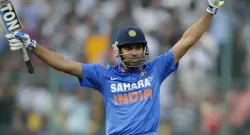
Jurgen Klinsmann's tenure as the head coach of South Korea's national football team has been a period marked by challenges and a lot of controversy following their unceremonious exit from the Asia Cup. His approach once brought fresh perspectives to the team, and he’s a legend of the game. Yet, in the fast-paced world of international football, no manager is safe no matter how famous their name may be.
The speculation over who Klinsmann’s replacement will be has played into the nation’s love affair with online sports betting. The evolving landscape of football fandom in South Korea means engagement extends beyond the pitch. The popularity of the growing number of totosites for Korea showcases the support and enthusiasm for the game in a digital arena, with team and management news often affecting the betting market too, although there aren’t currently odds available on who will be the next manager for South Korea.
The search for a new head coach invites speculation on who could bring the right blend of tactical insight, motivational skill, and visionary leadership to propel South Korea's football to new heights. In this exploration, we consider seven managers whose credentials and philosophies present them as fitting candidates to succeed Klinsmann and lead the team forward.
1. Marcelo Bielsa
The first name on the list is Marcelo Bielsa, an architect of modern football known for his innovative tactics and demanding training regimes. Bielsa's philosophy prioritizes high-intensity pressing and rapid ball movement, which could significantly enhance the dynamism of the South Korean squad. His successful stints across various leagues around the world demonstrate a remarkable ability to adapt and thrive in different footballing cultures, making him an intriguing option for the role.
2. Rafael Benitez
Rafael Benitez brings a wealth of experience from managing elite clubs in Europe, where he has achieved significant success. His strategic approach to games and ability to organize teams effectively, especially under pressure, could provide South Korea with the tactical solidity and adaptability needed on the international stage.
3. Vahid Halilhodžić
Known for his disciplined teams and strategic nous, Vahid Halilhodžić has a proven track record with national teams, having led Algeria, Japan, and Morocco to World Cup qualifications. His understanding of Asian football, combined with his experience in elevating teams on the global stage, marks him as a seasoned candidate capable of guiding South Korea to new achievements.
4. Guus Hiddink
Guus Hiddink, revered in South Korea for guiding the team to a historic semi-final finish in the 2002 World Cup, embodies a blend of tactical wisdom and emotional intelligence. His familiarity with the culture and his proven ability to unite and inspire players could make a potential return a rallying point for the team and fans alike. While he has already turned down a chance to return to the post, his popularity there means he could simply ask for the job and get it if he wanted to.
5. Paulo Bento
Having previously managed the South Korean national team, Paulo Bento possesses an intimate understanding of the team's dynamics and the broader footballing landscape in Asia. His tenure was characterized by a commitment to tactical discipline and team cohesion, elements that remain crucial for international success.
6. Bert van Marwijk
With experience in leading teams in the European and Asian footballing spheres, Bert van Marwijk is known for his pragmatic approach to the game. His ability to construct teams that are defensively solid while still being capable of exploiting attacking opportunities could offer South Korea a balanced and effective style of play.
7. Steve Bruce
Steve Bruce, with his extensive experience in English football, managing clubs across the Premier League and the Championship, brings a wealth of managerial knowledge and a pragmatic approach to the game. His expertise in team management, player development, and navigating the pressures of high-stakes football could be valuable assets to any national team looking to strengthen its competitive edge. More importantly, Bruce himself recently expressed interest in the position.
The possibility of Bruce taking over as the coach of the South Korean team would depend on various factors, including the Korean Football Association's (KFA) coaching requirements, Bruce's interest and readiness to engage in international football, and the strategic direction the KFA wishes to take the national team. Transitioning from club management in the UK to leading a national team in Asia would present a unique set of challenges and opportunities, requiring adjustments to a new footballing culture, language barriers, and the specifics of international competition.
Conclusion
The search for Jurgen Klinsmann's successor as head coach of the South Korean national football team opens up a realm of possibilities, each with the potential to herald a new chapter of success and innovation. The seven managers profiled here offer a range of styles and experiences that could enrich South Korean football. From Marcelo Bielsa's attacking philosophy to Guus Hiddink's inspiring leadership, the candidates present diverse pathways to achieving international acclaim.
As South Korea looks to the future, the decision will hinge on finding a leader who not only understands the tactical and technical aspects of the game but also resonates with the team's culture and aspirations, paralleling the way fans explore their passion through platforms like Totosites for Korea. The next head coach will have the opportunity to build on Klinsmann's legacy and chart a course toward greater achievements on the global stage.




